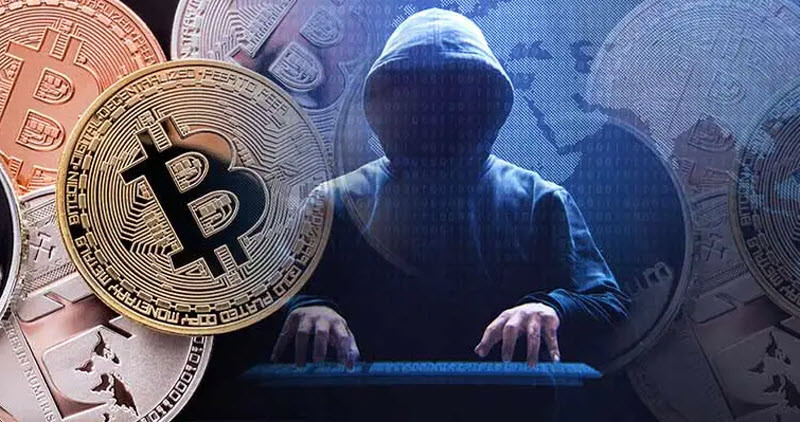2022 saw $3.8 billion worth of cryptocurrency thefts in the worst wave of hacks ever, compared to $3.3 billion in thefts in 2021.
According to Arabiya.net, the month of October 2022 recorded the largest number of breaches in the crypto sector for one month, as $775.7 million was stolen in 32 separate attacks, according to a report by the blockchain analytics company Chainalysis.
DeFi protocols
Decentralized finance protocols, known as DeFi protocols, accounted for about 82%, or $3.1 billion, of all cryptocurrencies stolen by hackers in 2022, according to the report.
DeFi protocols contain a string of codes that define how the virtual currency will be used on the blockchain network.
For example, for smart contracts, which are digital contracts that represent the basic technologies that allow cryptographic transactions to take place, they operate according to a set of conditional commands, including: since then; If it is X, do Y.
Within the decentralized finance protocol, smart contracts are publicly viewable sets of instructions that allow users to borrow, lend, or conduct transactions without an intermediary.
Once the user fulfills the terms and conditions of the smart contract, the transaction takes place automatically, similar to a vending machine.
According to the report, the majority of digital money was stolen from cross-chain crypto-bridge applications, as these programs allow users to transfer their cryptocurrency between different blockchains.
Cross-chain bridges can also be an attractive target for hackers because when users deposit their digital currencies into smart contracts to be transferred to another blockchain, the smart contracts become somewhat of a central store.
There is no place more attractive than that area, Chainalysis said in its report. If the bridge becomes large enough, any bug in the underlying smart contract code or other potential vulnerability will almost certainly be discovered and eventually exploited by hackers, it said. CNBC Network.
Cryptocurrency protection
Users should thoroughly research and examine the software that is being used to transfer or store cryptocurrencies.
There are virtual wallets that can safely store your cryptocurrencies and secure them against online attacks, according to Max Krobyshev, co-founder and head of CoinsPaid crypto payment system.
However, it is important to first determine what type of wallet is right for you.
In turn, said Chief Operating Officer of Halborn Cybersecurity, David Schwed: When it comes to reducing the risk of digital piracy, many of the problems are due to a lack of security.
He added: The decentralized finance community generally does not demand better insurance, as most users resort to high-return protocols, but these incentives lead to problems in the future.
Instead, DeFi developers would be smart to borrow the security strategies traditional financial institutions use to better protect their platforms.
These include testing protocols with simulated attacks, closely monitoring the blockchain for suspicious activity, and building processes that will halt transactions if suspicious activity is detected, Schwed said.
The Chainalysis report stated: DeFi protocols will benefit greatly from adopting better security in order for the ecosystem to grow and thrive and eventually break into the mainstream.










































